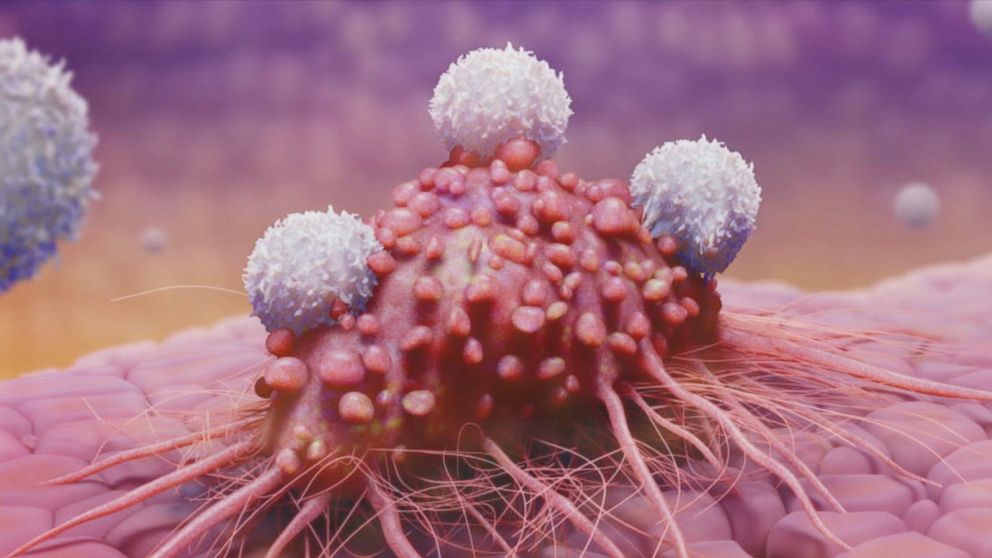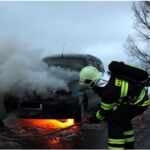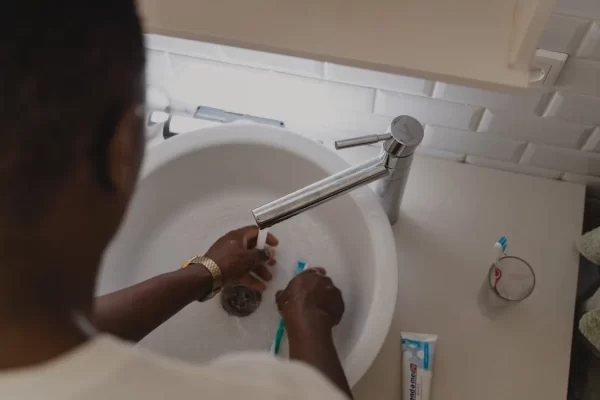In this guide, we have provided all the information about cancer risk factors and prevention in the following section of this post. Individuals who want to know about it then they must read this article till the last and get all the relevant information from here.
Table of Contents
What Is Cancer?
Cancer is a cluster of more than a hundred diverse diseases. It can widen about somewhere in the body. Cells are the fundamental units of that component of the body. Cells grow as well as split to make the latest cells as the body requires them. Typically, cells expire when they get too aged or injured. Afterward, new cancer cells take their position.
Cancer started when genetic modifications interfere with this orderly procedure. Cancer Cells begin to grow nonstop. These cells may outline a mass known as a tumor. A tumor can be cancerous. A cancerous tumor is evil, meaning it can grow as well as spread to other parts of the human body. A benign tumor denotes the tumor can develop, however, it will not spread. Several types of cancer don’t outline a tumor — these embrace leukemias, most kinds of lymphoma, as well as myeloma.
It is happening by sure changes to genes that manage the way our cancer cells function, especially how they grow as well as divide. Genes carry the guidelines to make proteins, which do much of the labor in our cells. Certain gene modifications can cause cells to dodge healthy growth controls moreover become cancer. For Instance, some cancer-cause gene modifications boost the production of a protein, which makes cells grow. Others result in the making of a distorted, and therefore not functional, a form of a protein that usually repairs cellular injure. Hereditary changes that support cancer can be inherited from our guardians if the changes are present in the cells, which are the reproductive cells of the human body (eggs as well as sperm). Such changes, known as germline changes, originate in each cell of the children.
Cancer-causing genetic modifications can also be getting throughout one’s lifetime, because of errors that happen as cells break up or from revelation to carcinogenic substances that harm Deoxyribonucleic Acid, like certain chemicals in tobacco smoke, as well as radiation, like UV rays from the sun. Genetic alterations that happen after conception are known as somatic changes. There are several different types of Deoxyribonucleic Acid changes. Some changes influence just one unit of Deoxyribonucleic Acid, known as a nucleotide. Another may change one nucleotide, or it may be missing altogether. Another changes include more immense stretches of Deoxyribonucleic Acid and may comprise deletions, rearrangements, or duplications of long stretches of Deoxyribonucleic Acid.
Sometimes the modifications are not in the definite sequence of Deoxyribonucleic Acid. For Instance, the toting up or eliminating of chemical marks, known as epigenetic modifications, on Deoxyribonucleic Acid can influence whether the genetic material is “expressed”—that is, whether as well as how much messenger Ribonucleic Acid is produced. (Messenger Ribonucleic acid, in turn, is translated to make the proteins encoded by the Deoxyribonucleic Acid.)
Usually, cancer cells have more hereditary modifications than normal cells. However, each person’s cancer has an exclusive combination of hereditary alterations. Some of these alterations may be the consequence of cancer, rather than the reason. As the tumor continues to grow, extra changes will happen. Even inside the same tumor, cells may have diverse genetic modifications.
Some essential facts related to cancer
The most risk factors for cancer comprise aging, radiation exposure, tobacco, sun exposure, chemicals as well as other substances, some viruses in addition to bacteria, certain hormones, family history of cancer, lack of physical activity, alcohol, poor diet, or being overweight.
Some reasons for cancer can be barred, but others like family history or aging can’t.
You can help avoid several forms of cancer by leave smoking, staying out of the sun as well as using sunscreen daily, follow all safety measures if you work with unsafe chemicals, do not have unguarded sex, get the vaccine that avoids hepatitis B infection if you are at danger for getting hepatitis B, drink in restraint, eat a balanced diet, exercise, as well as maintain a good weight.
Risk Factors For Cancer
It is typically not probable to know accurately why one person develops cancer, as well as another, doesn’t. However, research has shown the risk factors may amplify a person’s opportunity for developing cancer. (Some features are connected to a lower risk of cancer. These are sometimes known as protective risk factors
Cancer risk includes contact with chemicals or other matter, as well as firm behaviors. They also embrace things individuals can’t control, like age as well as family history. A family history of cancers can be a sign of a likely inherited cancer disease.
Most cancer risk factor (and defensive) factors are initially identified in epidemiology studies. In these studies, experts seem at huge groups of individuals and also compare those who widen cancer with those who do not. These studies show that individuals who develop cancer are more or less probably to behave in particular ways or to be uncovered to certain substances than those who don’t develop cancer.
Such expert studies, on their own, can’t show that behavior or matter causes cancer. For Instance, the verdict could be an effect of chance, or the fundamental risk factor could be amazing other than the so-called risk factor. However, opinions of this type sometimes get consideration in the media, as well as this can lead to wrong thoughts regarding how cancer starts as well as spreads.
When various studies all point to an akin association between a possible risk factor in addition to an enhanced risk of cancer, and when a possible system exists that could give details on how the risk factor could cause cancer, experts can be more precise about the association between the two.
The list below embraces the most-studied suspected risk factors for cancer cells. Though some of these risk features can be avoided, others — like a growing adult — cannot. Limiting your disclosure to not inevitable risk factors may lessen your risk of developing cancers.
- Diet
- Hormones
- Radiation
- Sunlight
- Age
- Immunosuppression
- Infectious Agents
- Obesity
- Alcohol
- Cancer-Causing Substances
- Chronic Inflammation
- Tobacco
What Are The Different Sorts Of Cancer?
There are over two hundred sorts of cancer, far too frequent to embrace in this introductory article. But, the NCI lists numerous general categories (see the list in the Ist segment of this post). This list is extended below to list more precise types of cancers found in each broad category; it is not all comprehensive, and the diseases listed in quotes are the common names of cancers:
- Leukemia: Leukemia Cancer that commences in blood-forming hankie like the bone marrow as well as causes vast no. of abnormal blood cells to be formed and go in the blood — “leukemia,” lymphoblastic leukemia, T-cell leukemia, myelogenous leukemia, as well as hairy-cell leukemia
- Lymphoma & myeloma: Lymphoma & myeloma Cancers that commence in the cells of the immune system — “lymphoma,” Hodgkin lymphomas, non-Hodgkin lymphoma, T-cell lymphomas, B-cell lymphomas, as well as lymphoproliferative lymphomas
- Carcinoma: Carcinoma Cancer that commences in the skin or in tissues that line or cover up internal organs — “ovarian cancers, skin, lung, colon, cause of pancreatic cancer, “squamous, epithelial, as well as basal cell carcinomas, papillomas, melanomas, as well as adenomas
Not incorporated in the above types scheduled are metastatic cancers; this is because metastatic cancer cells typically arise from a cancer cell type listed above, along with the major difference from the above types is that these cancer cells are nowhere in a tissue from which the cells did not formerly develop. As a result, if the terms “metastatic cancer” is utilized, for accuracy, the tissue from which the cancer cells arose should be embraced.
Prevention Of Cancer
Cancer prevention is an achievement taken to lower down the possibility of getting cancer. In the year 2019, more than 1.7 million individuals will be diagnosed with cancer in the US. Additionally, to the physical problems as well as emotional distress happen by cancer, the enormous costs of care are also a saddle to patients, their families, as well as to the public. By preventing cancer disease, the no. of new cases of cancer is lower. Expectantly, this will decrease the burden of cancer, as well as lower the no. of deaths, happen by disease.
Cancer is not a sole disease; however, a cluster of related diseases. Numerous things in our genes, our lifestyle, as well as the environment, surrounds us may enhance or decline our risk of getting cancer. Experts are studying several various ways to help stop disease, embracing the following:
Methods to evade or control things identified to cause cancer
- Modifications in the diet as well as lifestyle.
- Searching for precancerous situations early. Precancerous conditions are situations that may turn into cancer.
- Chemoprevention (to keep cancer from commencing).
- Risk-decreasing surgery.
Most professionals are influenced that numerous cancers can either be measured or the risk of developing cancers can be decreased. Some of the ways are simple; others are relatively tremendous, based on an individual’s view.
Prevention of cancer, by avoiding its causes, is the easiest method. First on most clinicians as well as researchers is to stop smoking tobacco. Avoiding excess sunshine (by lessening exposure or apply sunscreen) and numerous of the chemicals, as well as toxins, are brilliant ways to prevent cancers. Stop contact with certain viruses as well as other pathogens also are probable to prevent some cancers. Individuals who have to work near to cancer-causing agents (ionizing radiation researchers, asbestos workers, chemical workers, X-ray technicians) must follow all protection precautions as well as minimize any exposure to such substances. Though the FDA, as well as the CDC, suggests that there is no scientific proof that definitively says cancer cell phones cause cancer, other agencies call for research or indicate the risk is low. Worried people can limit contact to smartphones by employed an earpiece along with make as few smartphones call as possible.
What Are Cancer Signs And Symptoms?
Symptoms, as well as signs of cancer-based on the kind of cancer, where it is situated, and where the tumors have spread. For Instance, breast cancer can present as a bump in the breast or as nipple release while metastatic breast cancer may present with Signs and Symptoms of pain (if an increase to bones), tremendous fatigue (lungs), or attacks (brain). A few patients illustrate no signs or symptoms until the cancer is sophisticated.
The American Cancer Society discusses 7 warning signs and/or symptoms that cancer possibly present, and which should be punctual individuals to look medical attention. The word vigilance can help you keep in mind these.
- Change in bowel habits
- A sore throat that doesn’t mend
- Abnormal bleeding or discharge (for Instance, nipple secretions or a sore throat that will not repair that oozes material)
- Thickening in the testicles, breast, or elsewhere
- Indigestion (typically chronic) or intricacy swallowing
- Obvious alter in the shape, size, color, or thickness of a mole or a wart
- Nagging hoarseness or cough
Other symptoms or signs may also be aware you or your medical doctor to the likelihood of your having various forms of cancer. These embrace the following:
- Baffling loss of weight or loss of appetite
- Type of pain in the bones or other body parts that may be gradually worsening, or come as well as go, however, is unlike preceding pains one has had prior to
- Constant fatigue, nausea, as well as vomiting
- Inexplicable low-grade fevers with possibly either consistent or come as well as go
- Chronic infections which will not be apparent with typical treatment
Anybody with these symptoms and signs must consult their medical doctor; these symptoms and signs may also arise from noncancerous states.
Several cancers will at hand with some of the above general signs but frequently have one or more signs and symptoms that are more precise for the cancer sort. For Instance, lung cancer could present with widespread symptoms of pain, although typically, the pain is positioned in the chest. The patient may have abnormal bleeding. However, the bleeding generally happens when the patient coughs. Lung cancer patients frequently become short of breath as well as become very fatigued.
Because there are so several cancer kinds with so several nonspecific as well as sometimes more specific signs and symptoms, the best way to find out about signs, as well as symptoms of particular cancer types, is to spend not many moments researching signs of a specific area of the body in question. On the contrary, a precise body area can be searched to locate what signs, as well as symptoms individuals should look for in that part, is suspected of having cancer. The following instances are two ways to continue to get details on symptoms:
Use an explore engine (Bing, Google) to find information cancer by listing the symptom followed by cancer or if you know the sort you want information regarding (breast, lung, brain). For Instance, listing “blood in urine as well as cancer” will bring individuals to sites that contain possible organs as well as body systems where cancer may turn out the listed symptoms.
List the suspected body parts as well as cancer (for Instance, bladder furthermore cancer), and the individuals will see sites that list the signs as well as symptoms of disease in that part (blood in urine is one of many symptoms listed).
Be aware that health care experts do not unavoidably review several web sites; moreover could contain details that are not accurate. Your health care experts are ultimately the best source if you have concerns.
Besides, if the cancer kind is known, then even more particular searches can be finishing listing the diagnosed cancer sort and whatsoever may be questioned regarding cancer (symptoms, prognosis, as well as several other items).
One’s investigation must not replace consulting health care experts if somebody is concerned regarding cancer.
What Specialists Treat Cancer?
A medical doctor who specializes in the cure of cancer is known as an oncologist. He or she may be a doctor, a consultant in radiation therapy, or an oncologist. The first utilizes surgery to cure cancer; radiation therapy; chemotherapy as well as related treatments. Every may doctor with others to develop a cure plan for the specific patient.
Additionally, other experts may be included depending upon where the cancer is situated. For Instance, ob-gyn consultants may be embraced with uterine cancer, whereas an immunologist may be included in the cure of cancers that happens in the immune system. Your primary care physician, as well as the main oncologist, will help you to decide what professionals are best to be members of your professional treatment team.











